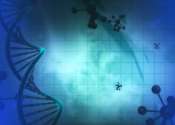'Resurrection ecology' of 600-year-old water fleas used to understand pollution adaptation
One of the leading threats to lakes since the rise of agriculture are runoffs from fertilizer, in the form of high phosphorus levels. These can trigger devastating events like eutrophication, where deadly algal blooms thrive ...









